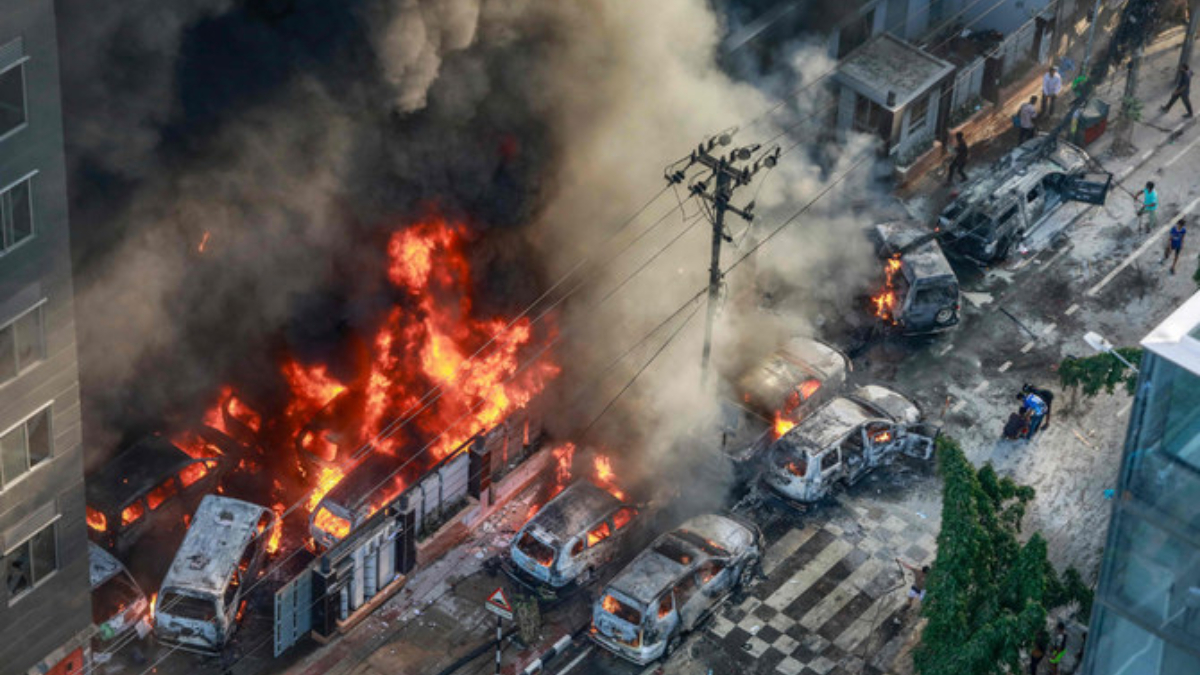Bangladesh is currently experiencing a wave of violent clashes and widespread unrest, leading to significant injuries and disruption. At least 104 police officers and 30 journalists were injured during a day of confrontations across the country, as reported by private broadcaster Independent Television. In total, 702 people were injured during Thursday’s protests, which erupted in 26 of the country’s 64 districts.
Protesters have set fire to several government buildings and vehicles. “The miscreants have already torched, vandalized and carried out destructive activities,” stated a police announcement. This includes attacks on the offices of state broadcaster BTV and the national disaster management agency, along with various police and government buildings. This statement came after a nationwide Internet shutdown on Thursday night, cutting off Bangladesh’s communication with the outside world.
“So far, we have shown maximum restraint,” the police said, warning that if the destructive activities continued, they would “be forced to make maximum use of law.” The protests, initially sparked by student anger over civil service hiring rules, have resulted in 39 deaths this week, with 32 killed on Thursday, making it the deadliest day of unrest so far.
On Friday, telecommunications remained widely disrupted across the nation. Reuters witnesses in Dhaka and New Delhi reported that telephone calls from overseas were mostly not connecting, and Internet-based calls were failing. Websites of several Bangladesh-based newspapers were not updating, and their social media handles were inactive. Only some voice calls were working within the country, and there was no mobile data or broadband available on Friday morning. Even SMS or mobile-to-mobile text messages were not going through, according to a Reuters photographer in Dhaka.
This nationwide agitation, the largest since Prime Minister Sheikh Hasina’s re-election earlier this year, is fueled by high youth unemployment. Nearly a fifth of the country’s 170 million population is out of work or education. Protesters are demanding the state stop reserving 30 percent of government jobs for the families of those who fought in the 1971 war of independence from Pakistan. Hasina’s government had abolished the quota system in 2018, but a high court reinstated it last month. The government has appealed the verdict, and the Supreme Court has suspended the high court order pending a hearing on the government’s appeal on August 7.






